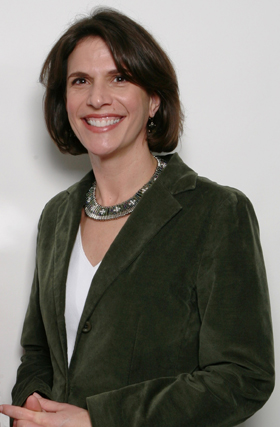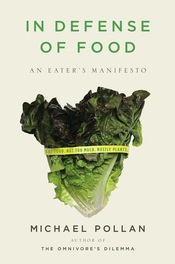Food writing is a genre of writing that focuses on food and includes works by food critics, food journalists, chefs and food historians.

Nutrition is the biochemical and physiological process by which an organism uses food to support its life. It provides organisms with nutrients, which can be metabolized to create energy and chemical structures. Failure to obtain the required amount of nutrients causes malnutrition. Nutritional science is the study of nutrition, though it typically emphasizes human nutrition.

"Junk food" is a term used to describe food that is high in calories from macronutrients such as sugar and fat, and often also high in sodium, making it hyperpalatable, and low in dietary fiber, protein, or micronutrients such as vitamins and minerals. It is also known as "high in fat, salt and sugar food". The term junk food is a pejorative dating back to the 1950s.

Joel Fuhrman is an American celebrity doctor who advocates a plant-based diet termed the "nutritarian" diet which emphasizes nutrient-dense foods. His practice is based on his nutrition-based approach to obesity and chronic disease, as well as promoting his products and books. He has written books promoting his dietary approaches including the bestsellers Eat to Live, Super Immunity, The Eat to Live Cookbook, The End of Dieting (2016) and The End of Heart Disease (2016). He sells a related line of nutrition-related products.

A fad diet is a diet that is popular, generally only for a short time, similar to fads in fashion, without being a standard scientific dietary recommendation, and often making unreasonable claims for fast weight loss or health improvements; as such it is often considered a type of pseudoscientific diet. Fad diets are usually not supported by clinical research and their health recommendations are not peer-reviewed, thus they often make unsubstantiated statements about health and disease.

A healthy diet is a diet that maintains or improves overall health. A healthy diet provides the body with essential nutrition: fluid, macronutrients such as protein, micronutrients such as vitamins, and adequate fibre and food energy.
The Center for Science in the Public Interest (CSPI) is a Washington, D.C.–based non-profit watchdog and consumer advocacy group that advocates for safer and healthier foods.

Michael Kevin Pollan is an American journalist who is a professor and the first Lewis K. Chan Arts Lecturer at Harvard University. Concurrently, he is the Knight Professor of Science and Environmental Journalism and the director of the Knight Program in Science and Environmental Journalism at the UC Berkeley Graduate School of Journalism where in 2020 he cofounded the UC Berkeley Center for the Science of Psychedelics, in which he leads the public-education program. Pollan is best known for his books that explore the socio-cultural impacts of food, such as The Botany of Desire and The Omnivore's Dilemma.

Adelle Davis was an American writer and nutritionist, considered "the most famous nutritionist in the early to mid-20th century." She was an advocate for improved health through better nutrition. She wrote an early textbook on nutrition in 1942, followed by four best-selling books for consumers which praised the value of natural foods and criticized the diet of the average American. Her books sold over 10 million copies and helped shape America's eating habits.

Marion Nestle is an American molecular biologist, nutritionist, and public health advocate. She is the Paulette Goddard Professor of Nutrition, Food Studies, and Public Health Emerita at New York University. Her research examines scientific and socioeconomic influences on food choice, obesity, and food safety, emphasizing the role of food marketing.
Nutrient density identifies the amount of beneficial nutrients in a food product in proportion to e.g. energy content, weight or amount of perceived detrimental nutrients. Terms such as nutrient rich and micronutrient dense refer to similar properties. Several different national and international standards have been developed and are in use.
Nutritionism is a paradigm that assumes that it is the scientifically identified nutrients in foods that determine the value of individual food stuffs in the diet. In other words, it is the idea that the nutritional value of a food is the sum of all its individual nutrients, vitamins, and other components. Another aspect of the term is the implication that the only point of eating is to promote bodily health. The term is largely pejorative, implying that this way of viewing food is simplistic and harmful, and the term is usually used to label others' views. The greatest popularizer of the term, journalist and professor of journalism Michael Pollan, argues that a food's nutritional value is "more than the sum of its parts."
Jane Ellen Brody is an American journalist/food writer principally covering science and nutrition. She wrote for The New York Times as its weekly "Personal Health" columnist from 1976 to 2022. Her column was syndicated nationwide, and she wrote several books on health. She was called the "High Priestess of Health" by Time magazine in 2008.
Food studies is the critical examination of food and its contexts within science, art, history, society, and other fields. It is distinctive from other food-related areas of study such as nutrition, agriculture, gastronomy, and culinary arts in that it tends to look beyond the consumption, production, and aesthetic appreciation of food and tries to illuminate food as it relates to a vast number of academic fields. It is thus a field that involves and attracts philosophers, historians, scientists, literary scholars, sociologists, art historians, anthropologists, and others.

Food, Inc. is a 2008 American documentary film directed by Robert Kenner and narrated by Michael Pollan and Eric Schlosser. It examines corporate farming in the United States, concluding that agribusiness produces food that is unhealthy in a way that is environmentally harmful and abusive of both animals and employees. The film received positive reviews and was nominated for several awards, including the Academy Award for Best Documentary Feature and the Independent Spirit Award for Best Documentary Feature. A sequel, Food, Inc. 2 was released on April 12, 2024.

Michael Herschel Greger is an American physician, author, and speaker on public health issues best known for his advocacy of a whole-food, plant-based diet, and his opposition to animal-derived food products.

MyPlate is the current nutrition guide published by the United States Department of Agriculture's Center for Nutrition Policy and Promotion, and serves as a recommendation based on the Dietary Guidelines for Americans. It replaced the USDA's MyPyramid guide on June 2, 2011, ending 19 years of USDA food pyramid diagrams. MyPlate is displayed on food packaging and used in nutrition education in the United States. The graphic depicts a place setting with a plate and glass divided into five food groups that are recommended parts of a healthy diet. This dietary recommendation combines an organized amount of fruits, vegetables, grains, protein, and dairy. It is designed as a guideline for Americans to base their plate around in order to make educated food choices. ChooseMyPlate.gov shows individuals the variety of these five subgroups based on their activity levels and personal characteristics.

Monica Reinagel is a nutritionist based in Baltimore, United States.

Mark Adam Hyman is an American physician and author. He is the founder and medical director of The UltraWellness Center. Hyman was a regular contributor to the Katie Couric Show until the show's cancellation in 2013. He writes a blog called The Doctor’s Farmacy, which examines many topics related to human health and welfare, and also offers a podcast by the same name. He is the author of several books on nutrition and longevity, including Food Fix, Eat Fat, Get Thin, and Young Forever.
A monotrophic diet is a type of diet that involves eating only one food item or one type of food. Monotrophic diets may be followed for food faddism motives, as a form of crash dieting, to initiate an elimination diet or to practice an extreme form of alternative medicine.













